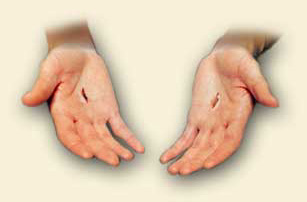ARE WE THE REAL ISSUE HERE?

Friday after Ash Wednesday
Mt 9:14-15
Last Wednesday we entered into the sober but joyful season of Lent. It was Ash Wednesday. Ash Wednesday and Good Friday are the only two days left when we, as Catholics, upon reaching 18 years old and until 59 years old, unless we are sick or under medication, are strictly required to fast.
Fasting means having only one full meal a day. In the early Church, the link between fasting and almsgiving was more highlighted. St. Augustine said, “Do you wish your prayer to fly toward God? Give it two wings: fasting and almsgiving. Christians would fast and therefore saved the amount of money they would have spent for food. Then, they would donate to the Church the money they saved. The Church then would use the donation for the needs of the poor. Clearly, here it is seen that fasting is oriented towards charity. Fasting is not postponing: we do not fast today then feast tomorrow. Fasting is not postponing spending money today so that we may splurge tomorrow. The money we save through fasting should be given to the poor, either directly or through the Church. The money from our fasting is no longer our savings; it is the savings for the poor. When we use the money we save from fasting for our selves, we are guilty of stealing from the poor.
The Gospel today takes up the issue of fasting. If we do not really understand why we fast, then the issue is actually on us. If we fast but we steal from the poor, then the real big issue is we.
Mt 9:14-15
Last Wednesday we entered into the sober but joyful season of Lent. It was Ash Wednesday. Ash Wednesday and Good Friday are the only two days left when we, as Catholics, upon reaching 18 years old and until 59 years old, unless we are sick or under medication, are strictly required to fast.
Fasting means having only one full meal a day. In the early Church, the link between fasting and almsgiving was more highlighted. St. Augustine said, “Do you wish your prayer to fly toward God? Give it two wings: fasting and almsgiving. Christians would fast and therefore saved the amount of money they would have spent for food. Then, they would donate to the Church the money they saved. The Church then would use the donation for the needs of the poor. Clearly, here it is seen that fasting is oriented towards charity. Fasting is not postponing: we do not fast today then feast tomorrow. Fasting is not postponing spending money today so that we may splurge tomorrow. The money we save through fasting should be given to the poor, either directly or through the Church. The money from our fasting is no longer our savings; it is the savings for the poor. When we use the money we save from fasting for our selves, we are guilty of stealing from the poor.
The Gospel today takes up the issue of fasting. If we do not really understand why we fast, then the issue is actually on us. If we fast but we steal from the poor, then the real big issue is we.


0 Comments:
Post a Comment
Subscribe to Post Comments [Atom]
<< Home